Researchers from various fields of cancer research are registered as junior and senior supervisors in the thematic program Malignant Diseases. If you are interested in a particular PhD research project, please contact the research group/supervisor directly. You find the contact information on the left side.
Senior Supervisors are highly experienced in supervising PhD projects. Young junior research group leaders without preceding experience can apply for admission as Junior Supervisor. Please contact the coordinator of the PhD program for accomplishing the admission procedure.
The Junior Supervisor is accompanied by a Senior Supervisor during a thesis project. An employment at the Medical University of Vienna is not a prerequisite for being a Junior/Senior Supervisor. Yet, the PhD research project must be in close relation to the Medical University of Vienna.

Andishe Attarbaschi, Univ.-Prof. PD Dr.
Senior Supervisor N790St. Anna Children’s Hospital
Department of Pediatric Hematology and Oncology
Kinderspitalgasse 6
1090 Vienna, Austria
Research Interests
Acute lymphoblastic leukemia, non-Hodgkin lymphoma (NHL), Hodgkin lymphoma (HL), rare lymphomas, supportive care in pediatric oncology, cancer predisposition, immunotherapy including CAR-T-cell therapies, post-transplant lymphoproliferative disease.
Research Focus
Acute lymphoblastic leukemia (ALL) is the most common malignant neoplasia in childhood and adolescence, accounting for 30% of all cancers.
Malignant lymphomas (each 50% with NHL and HL) are the 3rd (10%) and 1st ALL relapse, if considered independently, is the 4th most frequent neoplasm, still contributing significantly to cancer-related mortality in childhood and adolescence.
Primary ALL is curable in 80%, its 1st relapse in 50%, and highly malignant lymphomas depending on the subtype in 80–95%.
Thus, with an improvement of cure rates of 1st ALL relapse, an increase in cure rates for the overall cohort of children and adolescents with malignant diseases can be achieved.
However, the very good to moderate first-line results of the aforementioned entities are accompanied by partly severe acute, but also late side effects and, in particular, very long duration of therapy, so that a further intensification of conventional therapies is hardly feasible.
It is therefore to be expected that precision medicine with non-conventional drugs and cellular products will significantly change the entire treatment spectrum of children and adolescents with ALL and highly malignant lymphomas as well as solid tumors in the coming years.
.
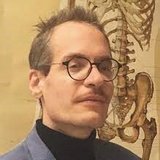
Pascal Baltzer, Assoc. Prof. Priv.-Doz. Dr.
Senior Supervisor N094 & N790Medical University of Vienna
Department of Biomedical Imaging and Image-guided Therapy
Unit of General Radiology and Paediatric Radiology
Währinger Gürtel 18-20
1090 Vienna, Austria

Rupert Bartsch, Assoc. Prof. Priv.-Doz. Dr.med.univ.
Junior Supervisor N790Medical University of Vienna
Department of Medicine I
Division of Oncology
Währinger Gürtel 18-20
1090 Vienna, Austria
Research Interests
Breast Cancer, Brain Metastases, Oestrogen Receptor, HER2.
Research Focus
The research focus is on clinical and translational research in early and metastatic breast cancer. Besides a longstanding interest in clinical trials in early-stage disease, the main area of research was the optimization of outcome of patients with advanced and metastatic breast cancer of all disease subtypes.
For many years, our group conducted successful research in the field of brain metastases and has gained expertise in this area from preclinical studies to investigator initiated clinical trials incorporating the most recent therapeutic options
.
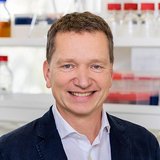
Walter Berger, Univ.-Prof. Mag. Dr. PhD
Senior Supervisor N094 & N790Medical University of Vienna
Center for Cancer Research
Borschkegasse 8a
1090 Vienna, Austria
Research Interests
Therapy resistance; novel anticancer drug targets; tumor-specific activation mechanisms for anticancer compounds; novel anticancer drug targets; fibroblast growth factor receptor/FGFR.
Research Focus
The majority of cancer deaths are caused by disseminated solid tumors exhibiting therapy resistance. Consequently, our translational and multidisciplinary cooperation projects focus on the development of novel therapeutic strategies in highly therapy-refractory cancers including lung cancer, mesothelioma, adult and childhood brain tumors and melanoma.
In cooperation with chemistry departments, novel anticancer compounds specifically activated in the cancer tissue are synthesized and (pre)clinically developed.
A specific focus lies on the fibroblast growth factor system and the respective receptors as an oncogenic factor and therapeutic target.

Anna Sophie Bergmeister-Berghoff, Assoc. Prof. Priv.-Doz. Dr.med.univ.et scient.med.
Senior Supervisor N094 & N790Medical University of Vienna
Department of Medicine I
Division of Oncology
Währinger Gürtel 18-20
1090 Vienna, Austria
Research Interests
Personalized Medicine, Immune-Oncology, CNS tumors, biomarker development.
Research Focus
Immunological factors in cancer progression, Biomarker development for personalized immunotherapy approaches, characterization of the inflammatory microenvironment.

Christoph Bock, Univ.-Prof. Dr. PhD
Senior Supervisor N094 & N790Medical University of Vienna
Center for Medical Statistics, Informatics and Intelligent Systems
Institute of Artificial Intelligence
Währinger Straße 25a
1090 Vienna, Austria
Research Interests
Medical Epigenomics, Bioinformatics, Machine Learning & Artificial Intelligence, Single-cell Sequencing, Cancer & Immunology, CRISPR Technology.
Research Focus
We seek to advance biology and biomedicine through technology-driven research, by combining experimental biology with computational methods in the areas of cancer, immunology, and precision medicine.
Our scientific vision is to understand how epigenetic regulation reflects the cells’ past and controls their future potential, with the perspective of rationally programming cells for therapeutic applications.
We are an ambitious and diverse team of experimental and computational researchers who combine wet-lab biology, bioinformatic methods, and high-throughput technology — usually with a translational component and in collaboration with clinical researchers.

Kaan Boztug, Assoc.-Prof. Priv. Doz. Dr.med. MD
Senior Supervisor N094 & N790St. Anna Children’s Cancer Research Institute (CCRI)
Zimmermannplatz 10
1090 Vienna, Austria
T: +43 (0)1 40470-4080
kaan.boztug@meduniwien.ac.at
kaan.boztugccri.at
Research Interests
Inherited bone marrow failure syndromes (iBMFs), inborn errors of immunity (IEIs), autoimmunity and autoinflammation, targeted treatment approaches for pediatric leukemias and solid tumors.
Research Focus
We have a long-standing and strategic interest in investigating inborn errors of immunity with predominant cancer predisposition. As such, many of the known genetic lesions that patients bear, are at the intersection of immunodeficiency and cancer predisposition. In ongoing work, we are dissecting the interplay of dysregulated actin biology linking immune cell abnormalities and cancer predisposition, as well as specific defects associated with particular vulnerability to virus-driven pediatric cancers such as lymphomas.
Further, we have a scientific interest in deciphering the molecular basis of inherited bone marrow failure syndromes. For Diamond-Blackfan Anemia (DBA), we have successfully applied for funding of a larger-scale European Research Network that aims to identify novel types of ribosome disorders and understanding their molecular pathology (RiboEurope, funding obtained in 2019).
Providing tailored treatment for every cancer patient is currently one of the main challenges in oncology. To this end, several research groups at CCRI including ours, are currently joining forces to implement structures for definition of targeted therapy options for selected tumor entities.

Christine Brostjan, Ao.Univ.-Prof. Dr.
Senior Supervisor N094 & N790Medical University of Vienna
Department of General Surgery
Division of Vascular Surgery
Anna Spiegel Center of Translational Research
Lazarettgasse 14, AKH 25.05.002
1090 Vienna, Austria
Research Interests
Colorectal carcinoma, cancer immunology, monocyte subsets in tumor biology and resistance to cancer therapy, vascular biology, biomarkers.
Research Focus
Colorectal carcinoma (CRC) is among the leading causes of death worldwide and novel treatment approaches are attempting to boost the immune response against tumor cells. Our previous studies showed a significant increase in a particular set of immune cells, the so-called "intermediate monocytes", in blood of colorectal cancer patients under chemotherapy which correlated with treatment success. We thus investigate whether intermediate monocytes (and possibly other subsets of monocytes) have essential functions in tumor growth and treatment efficacy and therefore constitute a therapeutic target.
Current experiments are focused on adoptive transfer of monocyte subsets in a humanized mouse model of colorectal cancer which offers the possibility to investigate the human myeloid cell populations with respect to their impact on CRC growth, metastasis and response to chemotherapy. In addition, clinical blood and tissue samples are retrieved from CRC patients and analyzed in comparison to the mouse models.
The results are expected to provide novel insights into monocyte changes induced by tumor growth and anticancer therapy, to identify targets to promote CRC treatment response and to possibly yield prognostic or predictive biomarkers.

Dan Cacsire Castillo-Tong, Ao.Univ.-Prof. Dr.
Senior Supervisor N094 & N790Medical University of Vienna
Department of Obstetrics and Gynecology
Translational Gynecology
Währinger Gürtel 18-20
1090 Vienna, Austria
T: +43 (0)1 40400-78330
dan.cacsire-castillo@meduniwien.ac.at
Research Interests
Ovarian cancer, molecular characterization, genetics, transcriptome profiling, experimental models, tumor recurrence, therapeutic targets.
Research Focus
Ovarian cancer is often diagnosed at late stage and the patients will be operated and treated with carboplatin-based chemotherapy. Even though most of them have response of the first line therapy, in many cases tumors will recur in a short period of time and the patients will die of the disease progression. The 5-year survival is below 35%. Efficient and specific targeted therapies are urgently needed to improve the treatment.
We successfully established patient-derived cell lines and analyzed them at genetic and molecular biological level. We found that almost all high grade serous ovarian cancers (HGSOC) lost the wild type p53 and thus had no or very low expression of the p21. Thus the cell cycle control is lost and the disease progresses along with the cell proliferation.
We also found that patients with quickly proliferating cells had rather shorter disease free interval than those with slowly proliferating cells. The Get Set Enrichment Analysis of the transcriptional profiling revealed that DNA replication was the major over-expressed pathway in quickly proliferating cells. By blocking the key molecules such as PRIM1 and POLA1with siRNA, the cell proliferation could be slowed down. In addition, we also find that a tumor specific antigen, the PRAME is highly expressed in HGSOC and had no expression in normal cells. Further therapeutic approaches targeting PRAME are intended.
Furthermore, we are interested in mucinous epithelial ovarian cancer, which has frequent KRAS mutations. We have initiated a project aiming at performing transcriptional profiling on enriched tumor cells from ascites of the patients and eventually defining novel therapeutic targets.

Martin Distel, Dr. PhD
Junior Supervisor N094 & N790St. Anna Children’s Cancer Research Institute (CCRI)
Zimmermannplatz 10
1090 Vienna, Austria
Research Interests
Cancer modeling in zebrafish, xenotransplantation in zebrafish larvae, drug screening, live imaging, multimodal imaging, optogenetics.
Research Focus
We are using zebrafish to model pediatric cancer as this model allows for live imaging of tumor cell behavior and easy compound screening.
We are applying these zebrafish cancer models to decipher molecular mechanisms underlying tumorigenesis and to identify new therapeutic strategies.
Recently, we have established an automated drug screening platform (Zebrafish platform Austria for preclinical drug screening “ZANDR”), which enables us to test small compounds on genetic zebrafish cancer models as well as on zebrafish larvae xenografted with human cancer cells at high-throughput. Here, we have been successful to identify drug combinations effective in Ewing sarcoma xenografts.
Furthermore, we are interested in the role of innate immune cells in tumorigenesis and how they could be reprogrammed to fight cancer cells.

Helmut Dolznig, Assoc. Prof. Priv.-Doz. Mag. Dr.
Senior Supervisor N094 & N790Medical University of Vienna
Centre for Pathobiochemistry and Genetics
Institute of Medical Genetics
Währinger Gürtel 18-20
1090 Vienna, Austria
Research Interests
Colon cancer, pancreas cancer, tumor stroma, cancer associated fibroblasts, tumor stroma interaction, cell signaling, immune cells in cancer.
Research Focus
The majority of human tumors are carcinomas (~90%), which develop from epithelial cells by accumulation of mutations, and account for the majority of cancer deaths per year. In carcinomas epithelial structures are always interwoven with fibroblasts, endothelial cells, pericytes and inflammatory cells. These mesenchymal cells constitute the so-called tumor stroma.
There is strong evidence for beneficial stromal influence on tumor development from experimental models. How the tumor stroma is involved in cancer initiation, invasion and metastasis is extensively studied, but so far less clear. Determining the stromal impact on tumor cells, and the reciprocal influence of malignant epithelial cells on the stroma at the molecular level will help to better understand cancer development.
We are specifically interested in the crosstalk between tumor cells, cancer associated fibroblasts (CAFs) and immune cells and put our focus on colon cancer to determine novel molecular mechanisms in the crosstalk between these cell types.
We developed state of the art three-dimensional co-culture models using matched organoids and primary stromal cell cultures from patient material, which recapitulate many aspects of carcinomas in vivo. In these models we study the functional consequences of tumor–stromal cell crosstalk and its implications for malignancy and for stromal drug targeting as well as in therapy resistance.
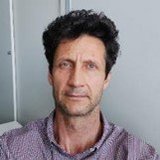
Balazs Dome, Assoc. Prof. Dr.med. PhD
Senior Supervisor N790Medical University of Vienna
Department of Thoracic Surgery
Translational Thoracic Oncology Program
Spitalgasse 23
1090 Vienna, Austria
Research Interests
Lung cancer, mesothelioma.
Research Focus
Identification of novel biomarkers and investigating potential therapeutic targets in lung cancer and malignant pleural mesothelioma. Lung cancer is the most common malignancy in terms of both incidence and mortality in the western world. Malignant pleural mesothelioma (MPM) is a devastating thoracic tumor with constantly rising incidence and with dismal prognosis largely due to resistance to current therapeutic modalities. Given the still dismal survival rates of these thoracic tumors, attention over recent years has focused on novel molecular targeted therapies with different mechanisms of action.
Accordingly, there is also a clinical need in this field to identify biomarkers that can help to recognize patients responsive to these therapies, detect tumor resistance and predict the efficacy of targeted drugs cost-effectively.
The central aim of the proposed program is, therefore, to gain a deeper knowledge in lung cancer and MPM biology and to develop novel biomarkers and therapies.
The program strives to be renowned for its collaboration with our clinicians as a pathway for transferring the results of research into diagnostic and therapeutic approaches that improve the survival of our patients.
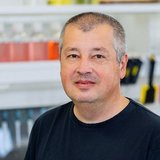
Robert Eferl, Assoc. Prof. Priv.-Doz. Mag. Dr.
Senior Supervisor N094 & N790Medical University of Vienna
Center for Cancer Research
Borschkegasse 8a
1090 Vienna, Austria
Research Interests
Colorectal cancer, oncoimmunology, tumor-stroma interaction, tumor-associated macrophages, JAK-STAT signaling, Tyk2, colitis, intestinal barrier function, protocadherins, CDHR5.
Research Focus
We are interested in cancer cell-intrinsic and hematopoietic functions of the Janus kinase Tyk2 in the development and metastasis of colorectal cancer. Our experimental approaches are chemical protocols for the induction of colitis-associated colorectal cancer in Tyk2 knock-out mice, mice with conditional deletion of Tyk2 in the intestinal epithelium or the hematopoietic system and injection of CRISPR/Cas9-engineered, Tyk2-deficient colorectal cancer organoids into the spleen (model for liver metastases in colon cancer).
Colitis is a major risk factor for colon cancer and is often associated with defects in the intestinal barrier. We are therefore investigating epithelial mechanisms that lead to barrier defects. Here we focus on the role of the intestinal brush border (microvilli) in maintaining the intestinal barrier.

Gerda Egger, Univ.-Prof. Mag. Dr.
Senior Supervisor N094 & N790Medical University of Vienna
Department of Pathology
Währinger Gürtel 18-20
1090 Vienna, Austria
Research Interests
Epigenetics, DNA methylation, chromatin, tumor biology, organoid culture, tumor microenvironment, medical epigenomics, epigenetic biomarkers, liquid biopsy, immunometabolism.
Research Focus
Epigenetic alterations are a hallmark of human cancer and are implicated in all stages of tumorigenesis. We aim to understand the causality of epigenetic aberrations in cancer, how epigenetic signatures are generated and how they can be reversed and remodeled.
We are interested to study basic epigenetic mechanisms as well as clinical applicability of epigenetic therapy or epigenetic biomarkers.
We focus on different tumor entities and use preclinical models including transgenic mouse models, primary cell lines and patient-derived organoid models.
In various projects we study the effects of epigenetic enzymes for tumor development, the role of epigenetics for EMT and drug resistance, epigenetic factors important for tumor-stroma crosstalk or metabolic effects on epigenetic reprogramming.
In collaboration with clinical partners and transdisciplinary scientists we aim to develop epigenetic biomarkers for non-invasive testing in liquid biopsies to translate our findings into clinical practice.
Our lab has a strong expertise on -omics approaches, bioinformatics, advanced tissue culture and biomarker discovery.

Isabella Ellinger, Ao.Univ.-Prof. Dipl.-Ing. Dr.
Senior Supervisor N094 & N790Medical University of Vienna
Center for Pathophysiology, Infectiology & Immunology
Institute for Pathophysiology and Allergy Research
Währinger Gürtel 18-20
1090 Vienna, Austria
Research Interests
Studying placental functions under physiologic and pathologic conditions Advancing automated microscopy.
Research Focus
I feel joined with the UN sustainable development goals (SDGs), specifically goal 3 which claims to “ensure healthy lives and promote well-being for all at all ages“ with one focus on reproductive, maternal, newborn and child health.
In line with this, one major aspect of my research deals with the understanding of placental functions. The placenta tries to guarantee proper fetal development and is thus very important for the development of the adult phenotype of the offspring. It exhibits plasticity and can adopt when facing an adverse environment such as maternal under- and over-nutrition or exposure to drugs or environmental pollutants.
However, when the placental capacity for adaption is exceeded, the regular function of the placenta is disturbed and/or the placenta does not develop properly, then the foetus becomes affected, which subsequently can impact on the life-long health of the foetus. This concept is known as fetal programming of diseases.
Considering some of the major health problems of today including under-nutrition on one hand and increasing obesity rates on the other hand as well as the many environmental pollutants known today, I consider deciphering physiologic and pathophysiologic functions of the placenta as extremely relevant for our future health and thus this research area will remain an important topic of my future work.
Another focus of goal 3 is to achieve universal access to essential health care services.
Histopathological image analysis is required for diagnosis of malignant lesions. But even for experienced pathologists the diagnosis process is not trivial.
Diagnostic concordance between specialists is on average only 75%. Moreover, there is a lack of pathologists in many parts of the world. These limitations motivate the development of Computer-Aided Diagnosis (CAD) systems based on automated image analysis algorithms.
Being a second opinion system, CAD systems shall reduce the workload of specialists, improve the diagnosis efficiency, and contribute to cost reduction.
In addition, automated image analysis is a big data analysis tool that is of high interest for biomedical researchers.
I am interested in using and further developing automated image analysis in ongoing and future collaborative research projects with the ultimate aim to identify new biomarkers, better understand specific diseases and advance personalized medicine.
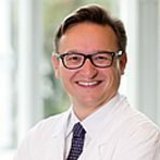
Boban M. Erovic, Priv.-Doz. Dr. MBA
Senior Supervisor N094 & N790Evangelical Hospital Vienna
Institute of Head and Neck Diseases
Hans-Sachs Gasse 10-12
1180 Vienna, Austria
Research Interests
Microvascular reconstruction, predictive/prognostic factors and target proteins in Merkelcell carcinoma and squamous cell carcinoma of the head and neck, clinical outcome research.
Research Focus
- Oncological ENT ablative surgery and outcome research
- Definition of new diagnostic and therapeutic algorithms for advanced tumors of the head and neck region
- Initiation of clinical studies by determining new predictive/prognostic/target molecules
- ENT reconstructive surgery
- Define new microvascular flap techniques and bring them to the clinic

Martin Filipits, Assoc. Prof. Univ.-Doz. Mag. Dr.
Senior Supervisor N094 & N790Medical University of Vienna
Center for Cancer Research
Borschkegasse 8a
1090 Vienna, Austria
Research Interests
Translational research, biomarkers, breast cancer, non-small cell lung cancer.
Research Focus
Characterization of molecular biomarkers which help to predict therapy response in cancer patients. These biomarkers should allow a more rational use of existing therapies, help to identify new targets in the therapy of malignant diseases or to increase the knowledge for better therapeutic concepts and ultimately improve outcome of cancer patients. To achieve this goal, we analyze tumor tissue of cancer patients for the expression of various proteins or genetic changes.

Christoph Gasche, Ao.Univ.-Prof. Dr.med.univ.
Senior Supervisor N094 & N790Medical University of Vienna
Department of Medicine III
Division of Gastroenterology and Hepatolgy
Laboratory for Molecular Gastroenterology
Währinger Gürtel 18-20
1090 Vienna, Austria
Research Interests
Colorectal cancer, Cancer prevention, Inflammation-driven cancer, Gut microbiota, Intestinal biofilms and IBS, Iron deficiency and thromboembolism.
Research Focus
Inflammatory Bowel disease (IBD) is caused by breakdown of intestinal homeostasis in a genetic susceptible host, via a complex interplay of environmental triggers (such as diet, smoking) and interactions between host and gut microbiota. Persistent mucosal injury and oxidative stress produced by chronic inflammation of gastrointestinal tract in IBD further modulates cellular signaling, leading to genetic instability and neoplasia. Moreover, disruption of epithelial barrier, dysregulated immune response and microbial dysbiosis alters molecular signaling in the stem cell niche of intestinal crypts.
Anti-inflammatory drug mesalamine (5-ASA) used in the treatment for IBD, also exhibits chemopreventive actions through signaling pathways; such as inhibition of Wnt/β-catenin, PAK1, PI3K/AKT/mTOR and MAP kinase or activation of PPAR-γ and anti-oxidant Nrf2, with pleotropic functions in inflammation and cancer.
Using PAK1KO and intestinal specific PAK1CKO mouse models, we are investigating the role of PAK1 signaling in microbial dysbiosis, intestinal inflammation and cancer.
Microbial dysbiosis contributes to pathophysiology of various conditions and we are examining the association and mechanism of biofilm formation in intestinal diseases; such as IBD, Irritable bowel Syndrome (IBS) and small intestinal bacterial overgrowth (SIBO).
Our research utilizes various mouse models of colorectal cancer and IBD (AOM/DSS, Apcmin, IL-10 KO, Msh2loxP/loxP Villin-Cre), intestinal organoids, human tissue samples, as well as variations in gut microbiota (16S rRNA sequencing, biofilm formation assays), to dissect out the pathomechanisms of intestinal inflammation, cancer and potential chemoprevention.

Dietmar Georg, Univ.-Prof. Dipl.-Ing. Dr.
Senior Supervisor N094 & N790Medical University of Vienna
Department of Radiation Oncology
Währinger Gürtel 18-20
1090 Vienna, Austria
Research Interests
Image guided radiotherapy, multiparametric imaging for tissue characterization, pre-clinical animal research in the context of radiation oncology, dose response modelling, proton and carbon ion therapy.
Research Focus
High precision radiation oncology aims to destroy the tumor without damaging normal tissue and organs. In order to achieve this delicate balance and to optimize treatment outcome in radiation oncology, following challenges are tackled in an interdisciplinary manner in clinical and pre-clinical medical radiation research. First beam qualities (photons, electrons, protons, carbon ions) are characterized applying physical and biological methods (cell lines, spheroid/organoids, animal models).
Next, we perform research to improve our understanding of dose response at the molecular, cellular and tissue level. When applying radiation in cancer care, the role of imaging has dramatically increased ("if you can’t see it you can’t treat it, if you can’t treat it you can’t cure it").
Therefore, we develop and bring technological innovations in medical imaging into the clinic. Besides anatomic imaging, multiparametric functional imaging has become an important non-invasive tool for tissue characterization prior treatment and for response assessment. Although hardware developments have an intrinsic role since the advent of radiation medicine, software plays an equal role today.
Data Scientists develop tools to automate processes in the treatment chain (e.g. tissue segmentation, automated treatment planning, biological optimization, tumor sub-volume analysis) or to improve tissue sparing via image guided synchronization of organ motion and beam delivery. These developments are mainly knowledge driven approaches and based on artificial intelligence.
More recently we have started to build up a large clinical database to extract outcome information from real world clinical data to prove and generate clinically driven hypothesis.

Christoph Grimm, Assoc. Prof. Priv.-Doz. Dr.med.univ.
Junior Supervisor N790Medical University of Vienna
Department of Obstetrics and Gynaecology
Division of General Gynaecology and Gynaecological Oncology
Währinger Gürtel 18-20
1090 Vienna, Austria
Research Interests
Ovarian cancer, endometrial cancer, cervical cancer, BRCA genes, homologous repair mechanisms, predictive and prognostic biomarkers in gynecologic malignancies, IO therapies in gynecologic malignancies (treatment prediction and mechanism), treatment options and pathogenesis of precursor lesions in cervical cancer, human papillomavirus, quality of life during/after oncologic treatments (surgical and medical therapy).
Research Focus
One of my main research activities is the primary and secondary prevention of cervical cancer. Other topics are the development of prognostic and predictive molecular biomarkers for ovarian and endometrial cancer and the improvement of quality of life of patients with gynecologic malignancies.
During my research activity I have participated in a number of large international projects (OVCAD, TOC, EUTROC, …).
Moreover, I am coordinating a broad number of translational research projects regarding endometrial and ovarian cancer.
I have received several personal and project related peer-reviewed grants and work currently as an editor for BMC Cancer, Cancers, and krebs:hilfe.

Thomas Grunt, Ao.Univ.-Prof. Mag. Dr.
Senior Supervisor N790Medical University of Vienna
Department of Medicine I
Division of Oncology
Comprehensive Cancer Center (CCC)
Währinger Gürtel 18-20
1090 Vienna, Austria
T: +43 (0)1 40400-54570 or 44300
thomas.grunt@meduniwien.ac.at
Research Interests
Breast cancer, cancer cell metabolism, endocrinology, lipid metabolism, fatty acid synthase, fatty acid transport, invasion, metastasis, ovarian cancer, signaling transduction, molecular cross-talk, molecular targeted treatment.
Research Focus
Our focus is on understanding the molecular interactions in complex growth regulation networks of cancer cells in order to develop new approaches for anti-cancer treatment. Using in vitro ovarian cancer models we are investigating mitogenic and anti-apoptotic ErbB/PI3K/AKT/mTOR signaling and lipogenic fatty acid synthase (FASN) pathways. These pathways are activated in most ovarian cancers and control crucial cell regulatory processes such as proliferation, growth, differentiation, apoptosis and energy balance.
Clinical interest is currently focused on targeting molecular constituents that direct the activity of these pathways in order to prevent and/or treat malignant diseases. Recent data demonstrate that oncogenic signaling and metabolic regulation are closely interacting with each other in cancer cells. Both systems are harboring a host of promising anti-cancer drug targets.
Our studies aim to elucidate the molecular mechanisms of interaction between signaling and metabolic systems and to demonstrate a potential benefit of combined anti-ErbB/PI3K/AKT/mTOR and anti-FASN targeted approaches for the treatment of ovarian cancer.
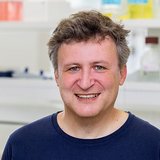
Michael Grusch, Assoc. Prof. Priv.-Doz. Mag. Dr.
Senior Supervisor N094 & N790Medical University of Vienna
Center for Cancer Research
Borschkegasse 8a
1090 Vienna, Austria
Research Interests
Malignant pleural mesothelioma, activin signaling, FGF/FGF-receptor signaling, biomarkers, therapeutic targets, mesothelioma-associated fibroblasts, epithelial to mesenchymal transition, Y-box binding protein 1.
Research Focus
Our research is focused on growth factors and their receptors in cancer development, therapy and drug resistance.
We aim to
(a) understand how growth factor signals contribute to malignancy
(b) translate this knowledge into strategies for therapeutic interventions and
(c) characterize mechanisms that determine sensitivity versus resistance of tumors to therapeutics interfering with growth factor signaling.

Emir Hadzijusufovic, Diplom-Tierarzt Dr.med.vet.
Senior Supervisor N790Medical University of Vienna
Department of Medicine I
Division of Hematology and Hemostaseology
Währinger Gürtel 18-20
1090 Vienna, Austria
T: +43 (0)1 40400-49990
emir.hadzijusufovic@meduniwien.ac.at
Research Interests
Drug-Related Side Effects and Adverse Reactions; Molecular Targeted Therapy; Neoplastic Stem Cells; Tumor Microenvironment; Veterinary Medicine.
Research Focus
Within this field, I am particularly interested in the interactions of leukemic stem cells (LSC) and the bone marrow (BM) niche and the role that the BM niche plays in protecting LSC against targeted therapy.
Furthermore, I am working in the field of comparative oncology, where I focus on improvement of treatment methods in human patients by learning from dogs with cancer and vice versa.

Helmuth Haslacher, Priv.-Doz. Mag. Dr.med.univ. Dr.scient.med., BSc BA
Senior Supervisor N790Medical University of Vienna
Biobank
Department of Laboratory Medicine
Währinger Gürtel 18-20
1090 Vienna, Austria
Research Interests
Laboratory medicine, diagnostic approaches for hematologic diseases, artificial intelligence, preanalytics, infection serology (SARS-CoV 2), biomarkers of non-communicable diseases, biobanking.
Research Focus
We aim to develop and evaluate new approaches for the diagnosis and differentiation of hematologic systemic diseases. Currently, a special focus is laid on the differentiation of myeloproliferative neoplasms with lymphatic blast phase and acute lymphoblastic leukemias. Above that, the working group is evaluating the performance of AI-supported diagnostic systems in haematological diagnostics. To this end, it works closely with the MedUni Vienna Biobank, which therefore provides support in the generation of standardized biomaterial.

Gregor Heiduschka, Assoc. Prof. Priv.-Doz. Dr.med.univ.
Senior Supervisor N094 & N790Medical University of Vienna
Department of Otolaryngology
Head & Neck Surgery
Währinger Gürtel 18-20
1090 Vienna, Austria
Research Interests
Head and neck cancer, squamous cell carcinoma, salivary gland carcinoma, organoids/tumoroids, personalised medicine, tumour biology, prognostic markers, therapeutic targets.
Research Focus
Despite novel therapeutic and diagnostic breakthroughs in cancer research, the prognosis of head and neck cancer patients remains poor. Better understanding of the tumour biology and identifying possible therapeutic targets remains a key interest.
In our research lab we assess novel therapeutic targets in head and neck squamous cell carcinoma and salivary gland tumours. Our focus lies both on established cell lines as well as primary cell culture as a step towards personalised medicine. Promising targets are further assessed in patient samples. Our research combines patient data / samples with basic lab techniques.

Gregor Hoermann, Priv.-Doz. Dr. MD Phd
Senior Supervisor N094 & N790MLL Munich Leukemia Laboratory
Max-Lebsche-Platz 31
81377 Munich, Germany
Research Interests
Laboratory diagnostics, genetic diagnostics, hematologic malignancies, leukemia, myelodysplastic syndromes, myeloproliferative neoplasms, mastocytosis, clonal hematopoiesis, cytokines.
Research Focus
Diagnosis, prognosis, and treatment monitoring of hematologic malignancies relies on the integration of laboratory diagnostics and genetic analyses. We aim to identify novel biomarkers in leukemia, myelodysplastic syndromes, myeloproliferative neoplasms, and mastocytosis, to investigate their pathogenetic relevance, and to exploit their utility to improve diagnostic procedures.
A particular focus of our work is the role of cytokines and genetic factors in mast cell neoplasms. Systemic mastocytosis is hematopoietic stem cell neoplasm characterized by the infiltration of aberrant mast cells in the bone marrow or other organs. The majority of patients harbor the somatic KIT D816V mutation that leads to a constitutive activation of the KIT tyrosine kinase and associated downstream signaling pathways. Cytokines and other mast cell mediators secreted by the neoplastic cells contribute to the pathogenesis of the disease and the symptoms observed in the patients.
By investigating aberrant signaling in mast cells and modifying genetic factors using in vitro and in vivo models as well as primary patient samples, we identify biomarkers as potential therapeutic targets and/or diagnostic markers in mastocytosis. Results are cross-validated in models and patient samples of other myeloid neoplasms.
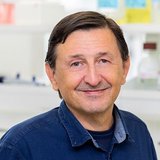
Klaus Holzmann, Ao.Univ.-Prof. Dipl.-Ing. Dr.
Senior Supervisor N790Medical University of Vienna
Center for Cancer Research
Borschkegasse 8a
1090 Vienna, Austria
Research Interests
Telomeres and telomerase, epigenetics, alternative lengthening of telomeres, telomere expression, alternative splicing, FGFR and epithelial splicing regulatory proteins (ESRPs), paracrine and autocrine cell signaling, extracellular vesicles, biomarker, tumor targeting.
Research Focus
The focus of the research is analyses of two essential hallmarks of tumors, immortality and growth factor signaling.
In detail, we study the telomere maintenance mechanisms (TMMs) and the fibroblast growth factor receptor (FGFR) signaling pathway in glioma, sarcoma, colorectal cancer and neuroendocrine neoplasia. We aim to characterize the mechanism behind in various tumors and respective tumor cell models of human and canine origin, in collaboration with clinical partners from medical and veterinary universities.
Our goal is to translate this knowledge into novel therapeutic strategies or combinations with established ones.
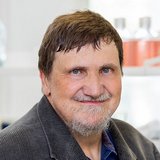
Wolfgang Huber, Ao.Univ.-Prof. Dr.
Senior Supervisor N094 & N790Medical University of Vienna
Center for Cancer Research
Borschkegasse 8a
1090 Vienna, Austria
Research Interests
Toxicology, chemical carcinogenesis, cancer prevention, oxidative stress, xenobiotic metabolism, liver and intestine.
Research Focus
Investigation of effects of potential chemoprotectants, such as coffee components, on oxidative stress and enzymes of xenobiotic metabolism. Oxidative stress may be a causative factor in the carcinogenic process at several levels, e.g. genotoxicity/tumor initiation or tumor promotion.
For instance, oxidative stress through the consumption of oxidized fat appears to play a role in the onset of non-alcoholic steatohepatitis, a pre-condition of hepatocarcinogenesis of increasing importance, particularly in case of over-nutrition. Enzymes of xenobiotic metabolism are involved in the activation and detoxification of many important carcinogens since most genotoxic carcinogens even require metabolic activation to exert their effect. Discovery of beneficial modifications of these mechanisms, e.g. by antioxidants or enzyme inducers/inhibitors, may ultimately lead to a reduction in cancer risk.
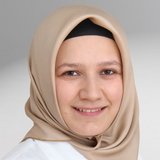
Aysegül Ilhan-Mutlu, Ap.Prof. Priv.-Doz. Dr.med.univ.et scient.med.
Junior Supervisor N790Medical University of Vienna
Department of Medicine I
Division of Oncology
Währinger Gürtel 18-20
1090 Vienna, Austria
T: +43 (0)1 40400-44450 or 44290
ayseguel.ilhan-mutlu@meduniwien.ac.at
Research Interests
Gastric cancer, gastroesophageal junction cancer, esophagus cancer, immunotherapy, immune checkpoint inhibitors, biomarkers, treatment response.
Research Focus
Establishment of immunotherapy compounds reshaped the treatment armamentarium of various oncological diseases. Cancer of upper gastroesophageal tract, including esophagus, gastroesophageal junction and stomach, was accounted to be one of the most immune enhanced oncological diseases, where immunotherapy might serve promise.
First large clinical trials confirmed these presumptions, as immunotherapy agents, particularly immune checkpoint inhibitors demonstrated meaningful clinical benefit for gastroesophageal tumors patients.
However, this effect was not seen in entire patient population.
There seem to exist specific sub-groups of patients with positivity of certain biomarkers. Our research group focuses on the definition of pre-existing and novel biomarkers or biomarker combinations in gastroesophageal tumor patients, in order to find out the patient population which might gather the highest benefit from immunotherapy.

Klaus Kaczirek, Ao.Univ.-Prof. Dr.med.univ.
Junior Supervisor N790Medical University of Vienna
Department of General Surgery
Unit of Visceral Surgery
Währinger Gürtel 18-20
1090 Vienna, Austria

Renate Kain, Univ.-Prof. Dr.med.univ. PhD
Senior Supervisor N094 & N790Medical University of Vienna
Department of Pathology
Währinger Gürtel 18-20
1090 Vienna, Austria
T: +43 (0)1 40400-36500 or 36505
renate.kain@meduniwien.ac.at
Research Interests
Immunology, molecular mechanisms of autoimmunity, lysosomal membrane-associated protein 2, cell-cell communication, extracellular vesicles, matrix biology, chronic inflammation.
Research Focus
Originating from work investigating the mechanisms of autoimmunity in renal disease and endothelial cell biology, the research interest of our group extends to molecular mechanisms of immunity and immune evasion more generally.
We investigate the composition of the immune cell infiltrate in inflammatory diseases and malignant neoplasias using classical histopathology, immuno-histochemistry, genomics and transcriptomics. By characterizing infiltrating immune cells and tumor cells we aim to elucidate how tumor cells evade the immune response.
We investigate the interaction tumor cells and the immune cell infiltrate with the extracellular matrix in non-neoplastic pathologies (chronic inflammation) and in malignant neoplasias and their role on processes that determine deposition of ECM, like progressive scarring. By studying extracellular vesicles from body fluids we explore their role as biomarkers and how they contribute to cellular communication.

Enikő Kallay, Priv.-Doz. Mag. Dr.
Senior Supervisor N094 & N790Medical University of Vienna
Center of Pathophysiology, Infectiology & Immunology
Institute of Pathophysiology and Allergy Research
Währinger Gürtel 18-20
1090 Vienna, Austria
Research Interests
Colorectal cancer, ovarian cancer, intestinal inflammation, vitamin D, calcium, extracellular calcium-sensing receptor, cell signalling, epigenetics; mouse models.
Research Focus
To understand and unveil biochemical and molecular mechanisms of the anti-tumourigenic and anti- inflammatory effects of vitamin D and dietary calcium in colon and ovarian cancer.
To study the role of the calcium sensing receptor (CaSR) in intestinal inflammation and colon carcinogenesis.
To study the role of vitamin D in intestinal inflammation and colon carcinogenesis.
Genetic and epigenetic investigation of the vitamin D system as physiological defence against colon and ovarian tumour progression.
We study the role of the vitamin D receptor and its ligand, 1,25 dihydroxyvitamin D3 (1,25D3), and the most important enzymes involved in synthesis and catabolism of 1,25D3, the 25-hydroxyvitamin D-1α-hydroxylase (CYP27B1) and the 25-hydroxyvitamin D- 24 hydroxylase (CYP24A1) in the normal and neoplastic colon.
We test different synthetic analogues of 1,25D3 in ovarian cancer cells and mouse models, to find highly anti-tumourigenic compounds with low calcaemic side effects.
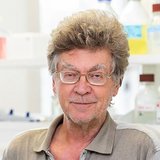
Siegfried Knasmüller, Ao.Univ.-Prof.i.R. Mag. Dr.
Senior Supervisor N094 & N790Medical University of Vienna
Center for Cancer Research
Borschkegasse 8a
1090 Vienna, Austria
T: +43 (0)1 40160-57562
siegfried.knasmueller@meduniwien.ac.at

Martin Knöfler, Ao.Univ.-Prof. Mag. Dr.
Senior Supervisor N094 & N790Medical University of Vienna
Department of Obstetrics and Gynaecology
Reproductive Biology Unit
Währinger Gürtel 18-20
1090 Vienna, Austria
Research Interests
Reproductive Biology, human placental development and differentiation, developmental signaling pathways (Wnt, Notch, Hippo, TGF-β signaling), primary trophoblast function and differentiation, key regulatory transcription factors in the placenta, endometrial development and differentiation, decidualization, fetal-maternal crosstalk in the pregnant uterus, reproductive diseases (preeclampsia, fetal growth restriction), trophoblast organoids, trophoblast stem cell expansion and differentiation .
Research Focus
Martin Knöfler is biochemist and Associate Professor at the Department of Obstetrics and Gynaecology, Medical University of Vienna, Austria. He is principal investigator and scientific coordinator of the Reproductive Biology Unit of the department and the current European Editor of the scientific journal Placenta.
His research interests include molecular mechanisms, signalling pathways and key regulatory factors controlling human placental development, trophoblast stem cells expansion and formation and differentiation of human trophoblast subtypes.
Moreover, his team aims unravelling critical steps of endometrial evolution, decidualization, the trophoblast-decidual cross-talk as well as placental pathologies with abnormal trophoblast function. The group of Martin Knöfler was the first establishing 3-dimensional trophoblast organoids from the human placenta.
His investigations resulted in over 130 published articles including peer-reviewed manuscripts, book chapters and invited reviews.

Oskar Koperek, Priv.Doz. Dr. MD
Senior Supervisor N790Labor Kaserer, Koperek & Beer OG
Reisnerstraße 5
1030 Vienna, Austria
Research Interests
Endocrine Pathology, Oncology, Tumor/stroma interaction, desmoplastic stroma reaction, Tumor progression, metastasis, immunohistochemistry, biomarker.
Research Focus
My research focus on the investigation of human tumor morphology including immunohistochemistry and correlation with clinicopathologic data.
Finding relevant pathogenic parameters and potential biomarkers for clinical purposes in diverse types of carcinoma are aims of my studies.
In this context, one main topic is the tumor stroma. One hallmark of many invasive carcinoma, like pancreatic, lung or thyroid cancer, is the development of a desmoplastic tumor stroma.
In many thyroid carcinomas, the development of a desmoplastic stroma is strongly associated with the occurrence of lymph node metastases. Because medullary thyroid carcinomas without desmoplastic stroma reaction do not show lymph node metastases, extensive lymphadenectomy can be avoided in these cases.

Heinrich Kovar, Univ.-Prof. Dr.
Junior Supervisor N094 & N790St. Anna Children’s Cancer Research Institute (CCRI)
Zimmermannplatz 10
1090 Vienna, Austria
Research Interests
Pediatric cancer, bone sarcoma, tumor cell plasticity, metastasis, Ewing sarcoma origin, 3D tumor models, aberrant oncogenic transcription factors, YAP/TAZ signaling, tumor/microenvironment interactions.
Research Focus
Ewing sarcoma, characterized by the expression of the chimeric ETS transcription factor EWS-FLI1, is the second most frequent bone cancer affecting primarily children and adolescents. The lack of knowledge of the tissue and developmental stage of tumor origin has so far prevented the generation of adequate pre-clinical models for this highly metastatic and frequently fatal disease. These are highly warranted to allow identification and prioritization of novel therapeutic compounds.
In search of targetable molecular pathways, our research therefore focuses on understanding the developmental context of Ewing sarcoma, and the mechanisms, by which EWS-FLI1 and its fluctuations drive disease pathogenesis and progression.
Our projects address the transforming activity of the fusion protein in vitro and in vivo, and the molecular pathways involved in tumor/microenvironment interactions supporting tumor spread and metastasis. To that end, we are applying cutting edge gene editing, high-throughput screening, bulk and single cell omics methods, 3D cell culture and organoid technologies. Comparing the results of our in vitro models to data derived from patient materials, we hope to identify new therapeutic targets and test novel approaches for the treatment of Ewing sarcoma and other pediatric solid tumors.

Diana Mechtcheriakova, Assoc. Prof. Priv.-Doz. Dr.
Senior Supervisor N094 & N790Medical University of Vienna
Department of Pathophysiology and Allergy Research
Institute of Pathophysiology, Infectiology & Immunology
Währinger Gürtel 18-20
1090 Vienna, Austria
T: +43 (0)1 40400-28600
diana.mechtcheriakova@meduniwien.ac.at
Research Interests
Systems biology, immuno-oncology, B cells, lymphoid structures, AID/APOBECs, sphingolipids, epithelial to mesenchymal transition, biomarker discovery, patients stratification strategies.
Research Focus
My long-term research interest is the characterization of cellular checkpoints, which redirect the physiologically balanced systems to the pathological situations leading to development and progression of multifactorial diseases.
Specific areas of interest include B-cell biology; the AID (activation-induced cytidine deaminase)/APOBEC (apolipoprotein B mRNA editing enzyme catalytic subunit) family with its multifaceted mode of action in immunity and cancer; formation, functionality and clinical relevance of ectopic lymphoid structures at sites with chronic inflammatory contexture including various types of solid tumors; assessment of patient-specific immunological imprint at the tumor and metastatic sites using quantitative tissue image cytometry; multigene approach for patient stratification and risk assessment; developing of integrative systems biology-based algorithms in a process of discovery of novel disease-associated breakpoints; special interest referred to the AID/APOBEC-associated biological events and the sphingolipid cellular machinery.

Wolfgang Mikulits, Ao.Univ.-Prof. Mag. Dr.
Senior Supervisor & Program Coordinator N094 & N790Medical University of Vienna
Center for Cancer Research
Borschkegasse 8a
1090 Vienna, Austria
Research Interests
Hepatocellular carcinoma, epithelial to mesenchymal transition, TGF-β signaling, receptor tyrosine kinase Axl, cell-cell communication, extracellular vesicles, tumor-stroma interaction, metastasis, biomarker.
Research Focus
The spread of cells from the primary cancer to distant organs is the most fearsome aspect of cancer. This process of cancer progression denoted as metastasis has exceptional clinical relevance and represents the major reason for the death of cancer patients. Upon the progression of carcinoma, changes in cell plasticity by the epithelial to mesenchymal transition (EMT) are of particular significance for local cell invasion, immune cell interactions, entry into vessels and chemoresistance.
We focus on the molecular mechanisms underlying the various aspects of cancer cell invasion and dissemination by analyzing the role of the TGF-β signaling pathway and cell signaling of the receptor tyrosine kinase AXL in hepatocellular carcinoma (HCC). The TGF-β/AXL regulated communication of HCC cells with activated fibroblasts and immune cells in the tumor microenvironment is of particular relevance in our studies. By investigating hypothesis-driven EMT tumor models together with gene-targeted mouse models and cancer patient samples, we develop accurate biomarkers for diagnosis and novel strategies for intervention with HCC progression and metastasis.

Leonhard Müllauer, Ao.Univ.-Prof. Dr.med.univ.
Senior Supervisor N094 & N790Medical University of Vienna
Department of Pathology
Währinger Gürtel 18-20
1090 Vienna, Austria
Research Interests
Molecular pathology, personalised oncology, biomarkers, next-generation sequencing, apoptosis, drug testing.
Research Focus
Modern cancer therapy increasingly focuses on targeting specific genetic alterations in tumor cells. Therefore, diagnostic molecular pathology that identifies these alterations is becoming increasingly important.
My research focuses on the characterisation of these genetic biomarkers for the improvement of cancer patient therapies. A further research interest is the elucidation of mechanism of dysregulation of cell death/apoptosis in cancer cells and exploiting detected vulnerabilities of cancer cells for novel concepts of therapy.
Additionaly, new projects aim at integrating the molecular pathological characterisation of tumors with in vitro drug testing of isolated tumor cells to improve targeted therapy of cancers.
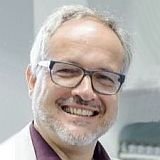
Rudolf Oehler, Ao.Univ.-Prof. Mag. Dr.
Senior Supervisor N094 & N790Medical University of Vienna
Department of General Surgery
Division of Viszeral Surgery
Währinger Gürtel 18-20
1090 Vienna, Austria
Research Interests
Colorectal cancer, breast cancer, tumor microenvironment, tumor immunology, myeloid cells, efferocytosis of apoptotic cells.
Research Focus
Our basic research interest is the immune response to cell death with special focus on cancer. We investigate which types of cell death (apoptosis, necroptosis, necrosis etc.) are induced by anti-cancer therapies, which molecular structures on dying cells are recognized by immune cells (DAMPs, mitochondria etc.), which receptors are involved, and what is the response of the different parts of the immune system (e.g. monocytes/macrophages, neutrophils, and the complement system).
Many studies (including from our group) strongly suggest that the clearance of dying cells initiates anti-inflammatory, pro-resolving mechanisms. We hope to find ways to overcome this inhibition of an anti-cancer immune response.

Ingrid Pabinger-Fasching, Ao.Univ.-Prof.i.R. Dr.med.univ.
Senior Supervisor N094 & N790Medical University of Vienna
Department of Medicine I
Clinical Department of Haematology and Haemostaseology
Währinger Gürtel 18-20
1090 Vienna, Austria
Research Interests
- Hereditary and acquired thrombosis risk factors: molecular and biochemical basis, aspects of diagnosis, clinical features and therapy
- Aspects of haemophilia treatment and acquired hemorrhagic diathesis
- Fundamentals and clinical relevance of coagulation abnormalities in patients with oncologic and haemato-oncologic diseases.
- Clinical and immunologic characteristics of patients with immune-thrombocytopenia
- Specific haemostaseologic problems in critically-ill patients
Research Focus
Research focuses on thrombosis and haemostasis, with particular interest in improving the understanding of risk, clinical course and mechanisms of venous thrombosis and bleeding disorders such as haemophilia. Thrombosis is a major health concern in the general population. One in 4 people worldwide die from conditions caused by thrombosis, and venous thromboembolism is the third most common cardiovascular disease. Inherited and acquired bleeding disorders represent the other side of the spectrum of haemostaseology. Less frequent in the general population, their diagnosis and management in clinical practice may be challenging.
Advances in the field of (inherited) bleeding disorders require additional clinical and translational research to better characterize pathophysiology, develop rational therapeutic targets, and improve patient care.

Verena Paulitschke, Assoc. Prof. Priv.-Doz. Dr. PhD
Junior Supervisor N094 & N790Medical University of Vienna
Department of Dermatology
Unit of General Dermatology and Dermatooncology
Währinger Gürtel 18-20
1090 Vienna, Austria
Research Interests
Melanoma, targeted and immune therapy, drug response and resistance, pathomechanisms of metastasis, function of exosomes in cancer, epithelial mesenchymal transition, biomarker identification, tumor microenvironment, photopheresis, proteome analysis.
Research Focus
Targeted and immune therapy offer novel and successful treatment options in advanced melanoma. However, therapy resistance is common and we focus on the identification of resistance mechanisms like epithelial mesenchymal transition, the function of the tumor microenvironment, the role of exosomes and the identification of predictive marker which might enable a patient stratification.
The main method used is proteomics in cooperation with the Institute of Analytical Chemistry (University of Vienna) followed by bioinformatics analysis and verification of the data by genomics, different molecular biological, functional methods and clinical validation.
We work with primary melanoma cells, acquired resistance cell models, cell cultures treated with drugs or stimulated with e.g. cytokines and serum and tissue samples.

Dietmar Pils, Priv.-Doz. Mag. Dr. MA MSc
Senior Supervisor N094 & N790Medical University of Vienna
Department of General Surgery
Währinger Gürtel 18-20,08.Hi.05
1090 Vienna, Austria
Research Interests
Solid carcinomas (pancreatic, colorectal, ovarian); Biomarker; Multiomics (large and small RNA expression, circular RNAs, proteins, metabolomics, clinical and outcome data) and data integration; microRNAs; Epigenetics; Lipoproteins; Tumor models.
Research Focus
The biology and development of malignant diseases is a complex and heterogeneous cascade of changes of the tumor (cells) and the hosting individual (in the microenvironment and systemically).
Using single analyte methods (immunohistochemistry, immunofluorescence staining, flow cytometry, ELISA, etc.) and high-throughput omics technologies of clinical samples and with in vitro or ex vivo models, validated with publicly available data-sets, will guide us to understand tumorigenesis and to develop new therapeutic strategies.
At the moment we are interested in a noncanonical specific type of miRNA-guided gene expression regulation, the impact of lipoproteins on tumor and immune cells and the development of malignant ascites/pleural effusions as tumor model, especially for immune therapies.
I am also interested in the development of integrative bioinformatic methods to extract clinically and biologically relevant information from (multi)omics together with clinicopathologic data.

Matthias Pinter, Ap.Prof. Priv.-Doz. Dr. PhD
Junior Supervisor N790Medical University of Vienna
Department of Internal Medicine III
Division of Gastroenterology and Hepatology
Währinger Gürtel 18-20
1090 Vienna, Austria
T: +43 (0)1 40400 47590 or 65890
matthias.pinter@meduniwien.ac.at
Research Interests
Hepatocellular carcinoma, immunotherapy, tyrosine kinase inhibitors.
Research Focus
The therapeutic landscape of hepatocellular carcinoma has evolved rapidly over the last decade. Immunotherapy-based combination treatments have replaced tyrosine kinase inhibitors as the new standard of care in systemic front-line therapy.
Our main research focus includes the systemic treatment of hepatocellular carcinoma, particularly the identification of prognostic markers and scores that may help to identify patients most likely to benefit from specific therapies.

Jürgen Pollheimer, Assoc. Prof. Mag. Dr.
Junior Supervisor N094 & N790Medical University of Vienna
Department of Obstetrics and Gynecology
Maternal-Fetal Immunology Group (MFIG)
Währinger Gürtel 18-20, 5Q 09.17
1090 Vienna, Austria
Research Interests
Human placenta, trophoblast, trophoblast differentiation, trophoblast invasion, endometrial immune cells, myeloid cells, macrophages, neutrophils, T cell immunity, maternal immune responses during pregnancy, pregnancy pathologies, gestational trophoblast diseases, placenta organoids, primary trophoblast cultures.
Research Focus
Our research interests lie in the principles of early placental development and function. More recently, my group also became interested in immunological aspects during early pregnancy.
We currently have five areas of research:
- Cytomegalovirus-driven effects on resident T cell immunity in the human endometrium;
- characterization of tissue‐resident macrophage signatures in the maternal decidua and the regulatory effect of placenta-derived trophoblasts on myeloid cells;
- characterization of placenta-specific, secreted factors with the potential to serve as prognostic marker signatures during early pregnancy;
- vascular alterations, immune cell distribution and function in decidual and endometrial tissues of women suffering from idiopathic, recurrent abortions;
- the role of placenta-derived diamine oxidase during pregnancy.
To conduct our research we exclusively focus on investigating primary tissues and cell isolates from elective pregnancy terminations by using a broad range of techniques including transcriptome-based analyses, SLAMseq, spatial transcriptomics, metabolomics, ImmunoSEQ, CyTOF, flow cytometry, primary trophoblast culture systems, T cell activation assays, macrophage cultures and placental organoid/immune cell co-cultures.

Gerald Prager, Assoc. Prof. Priv.-Doz. Dr.med.univ.
Senior Supervisor N094 & N790Medical University of Vienna
Department of Internal Medicine I
Comprehensive Cancer Center Vienna
Währinger Gürtel 18-20
1090 Vienna, Austria
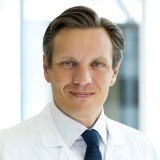
Matthias Preusser, Univ.-Prof. Dr.med.univ.
Senior Supervisor N094 & N790Medical University of Vienna
Department of Medicine I
Division of Oncology
Währinger Gürtel 18-20
1090 Vienna, Austria
Research Interests
Medical Oncology, immuno-oncology, precision medicine, prognostic and predictive biomarkers, brain tumors.
Research Focus
Immunotherapy, particularly with immune checkpoint inhibitors, has become a main treatment modality for cancer.
While long-lasting tumor remissions can be achieved, not all cancer patients respond to immunotherapy. Therefore, new biomarkers for accurate prediction of tumor immunogenicity are needed.
We focus on development of a tumor agnostic biomarker based on DNA methylation profiling from tumor tissue and blood samples, as well as mechanistic investigations explaining primary resistance to immune checkpoint inhibition.
Immunotherapy, particularly with immune checkpoint inhibitors, has become a main treatment modality for cancer. While long-lasting tumor remissions can be achieved, not all cancer patients respond to immunotherapy. Therefore, new biomarkers for accurate prediction of tumor immunogenicity are needed. We focus on development of a tumor agnostic biomarker based on DNA methylation profiling from tumor tissue and blood samples, as well as mechanistic investigations explaining primary resistance to immune checkpoint inhibition.

Peter Schellongowski, Assoc. Prof. Priv.-Doz. Dr.med.univ.
Junior Supervisor N790Medical University of Vienna
Department of Medicine I
Intensive Care Unit 13i2
Währinger Gürtel 18-20
1090 Vienna, Austria
T: +43 (0)1 40400 44920
peter.schellongowski@meduniwien.ac.at
Research Interests
Intensive Care Medicine, hematologic and oncologic malignancies, immunosuppressed patients, acute respiratory failure, acute respiratory distress syndrome (ARDS), infections, extracoroporeal life support, extracorporeal membrane oxygenation, outcome research.
Research Focus
My research is primarily clinical and focused on acute organ dysfunctions in critically ill cancer patients, immunosuppressed patients, and those with acute respiratory failure / ARDS. Especially cancer patients with hematologic malignancies require intensive care unit treatment due to complications of their disease at initial presentation, as well as complications of oftentimes aggressive treatment schedules in the later course. Part of the latter are infections, which also play a major role in the development of acute organ dysfunctions in immunosuppressed non-cancer patients. One of the leading organ dysfunctions in the affected patient population is the acute respiratory failure.
The clinical and research spectrum in these patients reaches from non-invasive ventilation to extracorporeal gas exchange modalities in the sickest of patients.
I am an active member of several national and international research collaboratives and participate and lead observational outcome studies as well as interventional investigations in the above-mentioned fields of interest.

Sebastian Schoppmann, Ao.Univ.-Prof. Dr.med.univ.
Junior Supervisor N790Medical University of Vienna
Department of General Surgery
Division of Visceral Surgery
Head Upper-GI-Service
Währinger Gürtel 18-20
1090 Vienna, Austria
T: +43 (0)1 40400 56210
sebastian.schoppmann@meduniwien.ac.at
Research Interests
Esophageal Cancer, Barretts development, minimally invasive cancer surgery, gastroesophageal reflux disease, prophylactic surgery, cancer progression, lymphatic metastasis.
Research Focus
Gastroesophageal (GE) tumors account for 35% of all cancers of the human digestive tract. The age-standardized incidence rates of distal gastric tumors and esophageal squamous cell carcinoma have clearly declined
Since the turn of the millennium, however, a dramatic increase in the magnitude of 400% has been observed in the incidence of carcinomas of the GE junction.
Widespread GE reflux disease (GERD) is the pathogenetic mechanism that is mainly responsible for this rising incidence.
Corresponding to the adenoma-carcinoma sequence of colon cancer, we now know that more than 70% of carcinomas of the GE junction develop via reflux-associated precursors (Barrett's dysplasia).
Over the past years, the establishment of initial multimodal and targeted therapies and the introduction of individualized surgical approaches have together resulted in improved treatment outcomes for advanced malignancies.
Still, with 5-year survival rates rarely exceeding 15%, carcinomas of the GE tract continue to be among the most aggressive tumors.
Surgery is the sole curative treatment approach.
Research in the following fields will be significant:
- the identification of molecular-pathologic prognostic and predictive markers;
- the establishment of multimodal and targeted treatment concepts;
- significant improvements in perioperative management;
- complex surgical technologies and platforms; and
- technological advancements in treating cancer precursors.

Martin Schreiber, Ao.Univ.-Prof. Mag. Dr.
Senior Supervisor N094 & N790Medical University of Vienna
Department of Obstetrics & Gynecology
Währinger Gürtel 18-20
1090 Vienna, Austria
Research Interests
Breast cancer, tumor suppressor gene p53 and its master regulator MDM2, estrogen receptor signaling, epithelial to mesenchymal transition, metastasis, genomic variants, biomarkers.
Research Focus
The centerpiece of our research is a panel of ~150 clinically and histopathologically well characterized human breast tumors. Over the years we have accumulated detailed gene expression and mutational profiles, clinical, histopathological, molecular and survival data of these patients and tumors.
Moreover, we have generated tissue arrays and genomic DNA and cDNA panels for IHC, FISH, qRT-PCR, polymorphism, sequence and epigenetic analyses.This is complemented by gain-of-function and loss-of-function approaches in our panel of 21 well characterized human breast cancer cell lines.
Any new project is designed to build up on these existing data and combine them with new ones. With these tools, we analyze key clinically relevant genes and pathways, their breast cancer specific alterations and perturbations, and their impact on cancer biology, metastasis, and cancer specific survival.

Medhat Shehata, Assoc. Prof. Priv.-Doz. Dr.
Senior Supervisor N094 & N790Medical University of Vienna
Department of Medicine I
Hematology/Hemostaseology Division
Währinger Gürtel 18-20
1090 Vienna, Austria
Research Interests
Tumor Microenvironment, lymphoid malignancies, chronic B cell leukemia, Leukemia stem cells, Bone marrow mesenchymal stem cells, Micrometastasis, Immune Checkpoint (PD-1/PD-L1), PI3K/Akt/PTEN, NOTCH, TGF-ß signaling and microenvironment models.
Research Focus
Tumor microenvironment plays a major role in leukemogenesis, cancer initiation, tumor progression and drug resistance. Tumor microenvironment is a complex system which includes cellular compartment (stromal cells, immune cells, T cells, B cells, monocytes and resident macrophages), soluble mediators (cytokines, growth factors, Chemokines and extracellular vesicles), matrix compartment (collagens, fibronectin, hyaluronan) and adhesion molecules (integrins).
The malignant cells change the natural tumor suppressor function of the microenvironment into a tumor supporting milieu. These changes provide the neoplastic cells with survival advantages through the modulation of central cell survival pathways such as PI3K/Akt, NOTCH, TGF-ß and immune checkpoint signaling.
We focus on exploring these cascades as a great opportunity for targeting tumor cells and discovery of novel treatment approaches for personalized therapy. We apply realistic ex vivo co-culture models based on primary stromal cells to explore and target the crosstalk between the neoplastic cells and their microenvironment. These models are ideal for getting a deeper insight into the mechanisms of tumor initiation, progression and drug resistance. They are also valuable for performing drug screening and drug combinations to generate proof of concepts for exploring novel therapeutic strategies and clinical validation.
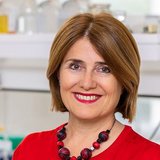
Maria Sibilia, Univ.-Prof. Mag. Dr.
Senior Supervisor N094 & N790Medical University of Vienna
Center for Cancer Research
Borschkegasse 8a
1090 Vienna, Austria
Research Interests
Receptor Tyrosine Kinases (EGFR, AXL, VEGFR), Solid Tumors, Genetically Engineered Mouse Models, Tumor Microenvironment, Microbiome Interplay, Tumor Organoids, Cancer & Immune Metabolism, Therapy Resistance.
Research Focus
Research in the Sibilia lab is focused on the molecular understanding on the interaction of cancer cells and immune cells favoring tumor progression, metastasis and therapy resistance, with a special focus on innate immune cells and how they affect inflammatory skin diseases and gastrointestinal tumors.
Tumor cells as well as the tumor microenvironment, which consists of infiltrating stromal and immune cells, are key contributors to cancer malignancy.
We want to explore possible molecular mechanisms by which the cellular environment affects chronic inflammation and tumor growth.
Moreover, the goal of our research is the comprehensive analysis of the multiple factors that affect response to therapy leading to intrinsic and acquired resistance, including oncogenic mutations in tumor cells affecting tumor sensitivity to immune effectors, alterations in the tumor or immune cell metabolism, and changes in the microbiome.
To attain a holistic view of these complex interactions we use genetically engineered mouse models (GEMMs) and tumor organoid cultures in combination with multi-omics approaches.
The ultimate goal is to provide a broad understanding of mechanisms that are targetable in malignant and inflammatory diseases and to exploit these novel concepts to develop rational and more effective mono- and combination therapies that ultimately improve the efficacy of treatments for human diseases.

Philipp Staber, Assoc. Prof. Priv.-Doz. Dr.med.univ.
Junior Supervisor N094 & N790Medical University of Vienna
Department of Medicine I
Division of Hematology & Hemostaseology
Währinger Gürtel 18-20
1090 Vienna, Austria
Research Interests
T-cell malignancies, lymphoma, hematopoiesis, precision medicine in hematology.
Research Focus
Finding functional switches in hematological malignancies: Our lab undertakes basic, translation and clinical research to advance and develop novel diagnostics and treatment modalities for patients with hematological malignancies.
More specifically, we study leukemias and lymphomas with particular high medical need for better therapies such as T-PLL (T-cell-prolymphocytic leukemia), and PTCL (peripheral T-cell lymphoma).
Moreover, the group has been instrumental in setting up a viable biobank (Vivi-bank) at the Medical University of Vienna, which currently contains a unique set of over 1000 fully annotated viable lymphoma samples for research use.
The laboratory is composed of various research profiles, including physician scientists, which drives our multi-disciplinary approach.
The basic research of the group focuses on key transcription factors of the blood system and their role in cellular differentiation, regulation of gene expression, and cancer formation. We particularly aim to understand how oncoproteins hijack physiologic programs to impact transcription factors so that they evoke hematologic cancers. Consequently, the central theme of our research is to push precision cancer medicine from a genetic centered view to a functional level where we test the feasibility and efficacy of integrating ex vivo drug screening in clinical decision making.
We are especially interested in the rational design of drug combinations to break therapy resistance and generating concepts on future trial design in the age of personalized precision medicine.

Patrick Starlinger, Assoc. Prof. Priv.-Doz. Dr.med.univ. PhD
Junior Supervisor N094 & N790Medical University of Vienna
Department of General Surgery
Division of Transplantation
Anna Spiegel Center for Translational Research
Lazarettgasse 14
1090 Vienna, Austria
Research Interests
Translational Research, Liver Regeneration, Liver Surgery, Liver Cancer, Preoperative Risk Assessment, Outcomes Research.
Research Focus
Molecular Aspects of Liver Cancer & Regeneration
Liver resection is considered the only curative treatment option for several neoplastic entities of the liver.
Despite substantial improvements in surgical techniques and peri-operative care, post-operative failure of liver regeneration and concomitant liver dysfunction remain an important concern after partial hepatectomy.
In hepatobiliary surgery, this is of major clinical relevance as patient outcome correlates with the potential of the remnant liver to regenerate.
In particular, postoperative liver failure represents a frequently fatal postoperative complication with very limited therapeutic options.
In this context, it is of crucial importance to understand the complex process of liver regeneration. Indeed, the potential of the liver to regenerate after resection is unique and orchestrated by a combination of highly redundant effector molecules, as blockage of a single molecule only delays but does not stop the process.
It is known that a variety of bioactive molecules are involved in liver regeneration.
In the past decades, essential insights in mechanisms of hepatic regeneration have been unraveled and several mediators of these mechanisms have been explored in detail.
Furthermore, thrombocytes have been found to play a crucial role, not only during the initiation period, but throughout all phases of liver regeneration.
In this context, hepatobiliary surgery struggles with two major obstacles:
- to identify patients at risk of postoperative liver dysfunction and concomitant major, potentially lethal, complications prior to surgery;
- to identify patients with highly aggressive disease, that will not benefit from liver resection due to rapid recurrence of the tumor.
In both cases surgery should be omitted as there is no benefit for these patients.
However, to date no reliable marker is available to predict patient outcome and postoperative tumor relapse.
Main research objectives of the group:
- Molecular mechanisms of liver regeneration and potential treatment targets:
- Identification of central regulators and processes involved in the initiation of liver regeneration.
- Characterization of regulatory mechanisms and thereby identification of novel therapeutic targets to support the regenerative capacity after liver resection as well as to improve our understanding of the pathophysiological processes involved in liver regeneration.
- Predictive and prognostic markers for liver regeneration and primary and secondary liver cancer:
- Identification of clinical and experimental markers of liver regeneration which reflect the prognosis of regenerative capability and therefore the postoperative outcome after liver surgery, to ultimately tailor surgical strategy to each individual patient and thereby avoid potentially fatal complications.
- Quantification of tumor aggressiveness using clinical and experimental markers to predict early disease recurrence, to spare unnecessary surgery in patients that will not benefit from tumor resection.
- Cancer development:
- Identification of the role of platelets and immune cells and their interaction during the development of liver cancer and progression.

Hedwig Sutterlüty, Assoc. Prof. Priv.-Doz. Mag. Dr.
Senior Supervisor N094 & N790Medical University of Vienna
Center for Cancer Research
Borschkegasse 8a
1090 Vienna, Austria
Research Interests
Cell-cell communication, Signal transduction, microRNA, Sprouty proteins, Ras protein, transformation, MAPK pathway, compartmentalized signaling.
Research Focus
Understanding how signal transduction is controlled is an important issue in biology with huge implications for understanding cancer.
The strictly coordinated cellular response to external signal is critical for many malignant cellular features including unrestricted and/or anchorage independent growth, increased disposition to migrate, as well as decreased adherence.
Consequently, many of the alterations found in cancer perturb molecular signaling and thereby cause a strongly reduced dependence on external mitogenic stimulation.
Most of our current projects are designed in order to clarify the role of Sprouty proteins in cell signaling and cancer.
We investigate how Sprouty protein are regulated including the influence of microRNAs, promoters and posttranslational modifications.
Additionally, we want to elucidate their role as modulators up- and downstream of Ras in dependence on the cellular backgrounds.

Yen Yen Tan, Priv.-Doz. BSc MSc PhD
Junior Supervisor N094 & N790Medical University of Vienna
Department of Obstetrics and Gynecology
Währinger Gürtel 18-20
1090 Vienna, Austria
Research Interests
BRCA1/2 genes, hereditary breast and ovarian cancer, early detection of cancer, cancer epidemiology, risk prediction models, quality of life, supportive care needs, survival.
Research Focus
My research interests cover all aspects of the epidemiology of hereditary breast and ovarian cancer, ranging from etiology and prevention to diagnosis, quality of life, supportive care needs and survival.
A particular focus is on developing risk prediction models and improving health services and outcomes for the high-risk cancer population.
Much of this work is conducted within the Austrian Hereditary Cancer National Study (ATHENA), International BRCA1/2 Carrier Cohort Study (IBCCS), Consortium of Investigators of Modifiers of BRCA1/2 (CIMBA), and Evidence-based Network for the Interpretation of Germline Mutant Alleles (ENIGMA).
Funding has recently been obtained for two new projects:
- PREDICTOME Study (WWTF, 2021-2024) that will develop a validated machine-learning model for predicting pathologic complete response in breast cancer patients towards safely omitting surgery based on early neoadjuvant chemotherapy response, and
- identification and molecular analyses of brain metastasis in breast cancer patients study (CCC, 2022-2024) that aims to identify new gene targets that facilitate metastasis and to assess if breast cancer patients with BRCA1 mutation have a higher risk of brain metastasis.

Peter Valent, Univ.-Prof. Dr.med.univ.
Senior Supervisor N094 & N790Medical University of Vienna
Department of Medicine I
Division of Hematology & Hemostaseology and
Ludwig Boltzmann Institute for Hematology and Oncology
Währinger Gürtel 18-20
1090 Vienna, Austria
Research Interests
Hematologic neoplasms, leukemia, precision medicine and personalized medicine, stem cells, targeted drugs, mast cells, basophils, eosinophils.
Research Focus
Myeloid leukemias and other myeloid neoplasms are composed of two distinct fractions of cells, a bulk-population that has a limited capacity of long-term proliferation, and a smaller fraction that has unlimited self-renewal and thus long-term disease-propagating capacity, the so-called neoplastic leukemic stem cells (LSC).
During the past 10 years, LSC have been studied extensively in basic science and translational medicine. The related concept has critical implications for the development of "curative" drug therapies. Notably, anti-leukemic drugs or immunotherapies can only exert curative effects when eliminating most or all LSC.
A major aim in LSC-related projects of the Valent group is to establish improved, potentially curative, approaches for human leukemias by applying drugs and drug combinations or immunotherapies that can eliminate LSC in these malignancies, either directly or by targeting the LSC-supporting niche and/or immunologic mechanisms mediating LSC resistance.
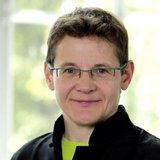
Katrina Vanura, Assoc. Prof. Mag. Dr.
Senior Supervisor N094 & N790Medical University of Vienna
Department of Medicine I
Division of Hematology & Hemostaseology
Währinger Gürtel 18-20
1090 Vienna, Austria
Research Interests
Lymphoid malignancies, chronic inflammatory conditions and lymphoid malignancies, sex-specific differences in hematologic malignancies.
Research Focus
Our research encompasses various aspects of lymphoid malignancies and include environmental factors, sex specific differences, markers for prognosis and treatment response.
Hematologic malignancies are characterized by a male to female ratio of 1.5-3:1, depending on the neoplasm.
The reason for this increased risk of men to develop blood cancer is entirely in the dark. Also, female sex is associated with good prognosis and better response to treatment in many of the diseases.
Hard facts regarding sex-specific differences are, however, mostly lacking.
Using chronic lymphodytic leukemia (CLL) as model system, we want to gain insights into these differences to better understand the biology of CLL, which eventually may lead to different therapeutic approaches that take into account the biological differences between the sexes.
In this respect, we found UGT-glucuronosyltransferases to represent bad prognostic markers which also appear to be involved in the deactivation of chemotherapeutic and targeting drugs.
Considering their role in steroid hormone metabolism, we study activity and function of these enzymes in addition to hormones and hormone receptors to better understand the differences between female and male patients with CLL.

Stephan N. Wagner, Univ.-Prof. Univ.-Doz. Dr.med.univ.
Senior Supervisor N094 & N790Medical University of Vienna
Department of Dermatology
Laboratory of Molecular Dermato-Oncology and Tumor Immunology
Währinger Gürtel 18-20
1090 Vienna, Austria
T: +43 (0)1 40400-77000
stephan.wagner@meduniwien.ac.at
Website Stephan Wagner
Research Interests
Melanoma, tumor microenvironment, B cells and subpopulations, tertiary lymphoid structures, therapy resistance.
Research Focus
The tumor microenvironment is critical to tumor growth, disease progression, and treatment response. Our research group focuses on the contribution of B cells to melanoma progression and response to therapy.
B cells are part of the microenvironment of human melanomas and can originate from both tumor lymph nodes and tertiary lymphoid structures at tumor sites, known as TLS.
B cells and TLS have been shown to enhance the T-cell response to tumor and predict response to therapy with antibodies that block the immune checkpoint in various cancers.
However, the underlying mechanisms are poorly understood. On the other hand, B cells and TLS are also capable of dampening immune responses, but the triggers for this functional dichotomy remain to be uncovered. Through hypothesis-driven multi-omics analyses of human tumor samples in conjunction with advanced ex vivo and in vitro models that functionally investigate the interaction of tumor cells and cells of the tumor microenvironment, we will decipher the relevant mechanisms and validate them in in vivo models of the disease together with collaborative partners.

Elisabeth Waldmann, Priv.-Doz. Dr. PhD
Senior Supervisor N094 & N790Medical University of Vienna
Department of Medicine III
Division of Gastroenterology and Hepatology
Währinger Gürtel 18-20, 7i
1090 Vienna, Austria
Research Interests
Colorectal cancer, cancer screening, molecular profiling, hereditary syndromes.
Research Focus
Screening colonoscopy aims to detect and resect colorectal cancer in very early, curative stages, or preferably its precursor lesions, adenomas or serrated polyps, to prevent from malignant transformation and hence reduce incidence and mortality of colorectal cancers. Poor quality colonoscopy and presumably distinct tumor features can lead to colorectal cancer diagnoses despite screening.
We focus on two particular research interests.
First, endoscopists related factors that can cause post-coloscopy colorectal cancer. We assess endoscopists’ performance on the basis of a database of screening colonoscopies performed within a national quality assurance program.
Second, we are interested in molecular profiling of colorectal cancers, particularly post-colonoscopy colorectal cancers. We aim to investigate the role of immune surveillance of colonic lesions, to identify features that impact long-term patient outcome.

Rotraud Wieser, Ao.Univ.-Prof. Mag. Dr.
Senior Supervisor N094 & N790Medical University of Vienna
Department of Medicine I
Division of Oncology
Währinger Gürtel 18-20
1090 Vienna, Austria
Research Interests
Acute myeloid leukemia, therapy resistance, relapse, leukemic stem cells, CALCRL, CGRP, MECOM, retinoic acid, head and neck squamous cell carcinoma.
Research Focus
Acute myeloid leukemia (AML) is an aggressive and often fatal hematological malignancy. Despite recent approval of targeted drugs, chemotherapy is still the mainstay of treatment.
Chemotherapy achieves remissions in the majority of patients, but many of them subsequently relapse with largely therapy resistant disease.
Relapse is thought to result from the outgrowth of therapy resistant leukemic stem cells (LSCs), and represents a key problem in the treatment of AML.
We reasoned that genes differentially expressed between diagnosis and relapse of AML are likely to contribute to leukemia cell survival under chemotherapy, thus facilitating relapse. Over 1.000 such genes were identified through genome wide gene expression profiling.
Functional characterization of several of these genes, including CALCRL, which encodes a G-protein coupled receptor for the peptide ligand CGRP, showed that they indeed played roles in aggressiveness, stem cell related properties, and therapy resistance of AML.
Other research of the group deals with the effects of all-trans retinoic acid, a therapeutic whose clinical activity is restricted to certain subgroups of AML, on molecularly and genetically distinct AML LSCs.
Most recently, the group has started research on genes involved in the pathogenesis of head and neck squamous cell carcinoma.

Niklas Zojer, Priv. Doz. Dr. PhD
Senior Supervisor N790Vienna Health Care Group
Clinic Ottakring
Wilhelminen Cancer Research Institute
1st Medical Department
Center for Oncology and Hematology & Palliative Care
Montleartstraße 37
1160 Vienna, Austria
Research Interests
Multiple Myeloma, Bone marrow microenvironment, Novel drug targets, Drug resistance.
Research Focus
The research focus lies on studying myeloma cell survival strategies in vitro, identifying novel drug targets and delineating drug resistance. Furthermore, we are looking at myeloma-bone marrow microenvironment interactions, which augment the disease process and may be suitable for therapeutic intervention.
Besides studying these processes using myeloma cell lines, the close collaboration with the clinical department allows the use of primary material obtained from patients after informed consent. Correlation of data with clinical parameters is useful for identifying markers of prognostic and predictive significance.